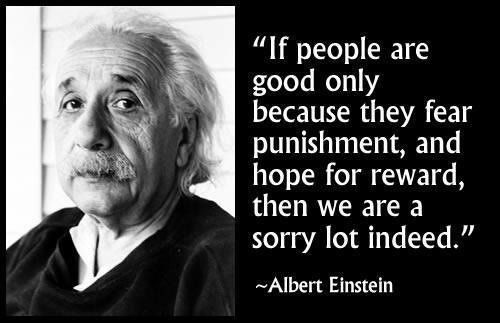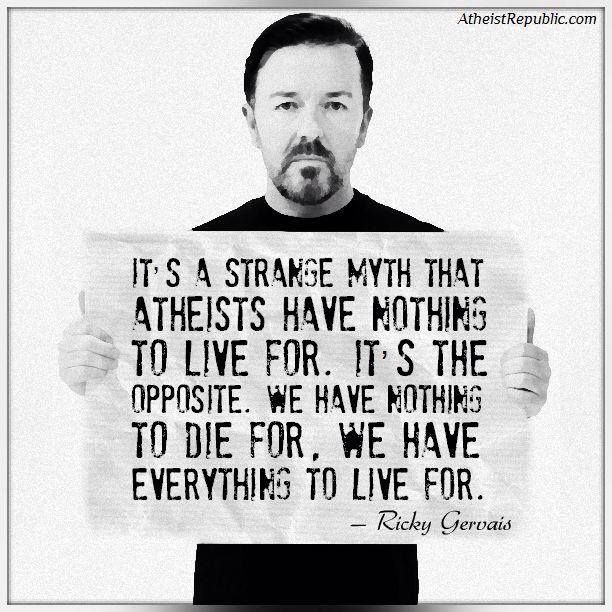-
Welcome to Religious Forums, a friendly forum to discuss all religions in a friendly surrounding.
Your voice is missing! You will need to register to get access to the following site features:- Reply to discussions and create your own threads.
- Our modern chat room. No add-ons or extensions required, just login and start chatting!
- Access to private conversations with other members.
We hope to see you as a part of our community soon!
You are using an out of date browser. It may not display this or other websites correctly.
You should upgrade or use an alternative browser.
You should upgrade or use an alternative browser.
Daily Reflections
- Thread starter Deidre
- Start date
This one will be different from the others.

He is so wrong.
Atheists needn't know anything to disbelieve in gods.
Proof that I'm right:
Despite his beliefs, Carl Sagan is dead.
Despite my beliefs, I'm still alive & revolting!
He is so wrong.
Atheists needn't know anything to disbelieve in gods.
Proof that I'm right:
Despite his beliefs, Carl Sagan is dead.
Despite my beliefs, I'm still alive & revolting!
This one will be different from the others.

He is so wrong.
Atheists needn't know anything to disbelieve in gods.
Proof that I'm right:
Despite his beliefs, Carl Sagan is dead.
Despite my beliefs, I'm still alive & revolting!
lol I ran across that quote recently too, and I was taken aback that it came from Carl Sagan. Atheism isn’t an authoritative position on whether a god exists or not, it’s merely a lack of belief in the supernatural/a deity. For me personally, I’m open minded to the idea of a ‘Creator’ but as far as it being anything remotely intimated by the thousands of ‘religions’ out there, no…I don’t believe in those ideas. And I don’t ‘need’ to know anymore, which brings relief and peace.
lovemuffin
τὸν ἄρτον τοῦ ἔρωτος
It is likely the quote is out of context, but I would suggest Sagan is talking about very strong claims to knowledge about the non-existence of gods. That's what he means by "some definitions". He's trying to suggest a certain level of epistemic humility. As in the distinction between an atheism that withholds assent to the proposition that "at least one god exists" and one that makes the positive claim "no gods exist". Sagan was clearly an atheist in the first sense (he does not believe) but thinks the second is problematic (the claim to absolute knowledge)
It seems that Sagan focused upon that rarest of atheists....the strong atheist.lol I ran across that quote recently too, and I was taken aback that it came from Carl Sagan. Atheism isn’t an authoritative position on whether a god exists or not, it’s merely a lack of belief in the supernatural/a deity. For me personally, I’m open minded to the idea of a ‘Creator’ but as far as it being anything remotely intimated by the thousands of ‘religions’ out there, no…I don’t believe in those ideas. And I don’t ‘need’ to know anymore, which brings relief and peace.
Those of us who disbelieve in gods because there's no evidence/proof will
typically notice that there's no evidence/proof that gods cannot exist.
Ya just can't be certain of such stuff.
It is likely the quote is out of context, but I would suggest Sagan is talking about very strong claims to knowledge about the non-existence of gods. That's what he means by "some definitions". He's trying to suggest a certain level of epistemic humility. As in the distinction between an atheism that withholds assent to the proposition that "at least one god exists" and one that makes the positive claim "no gods exist". Sagan was clearly an atheist in the first sense (he does not believe) but thinks the second is problematic (the claim to absolute knowledge)
That’s excellent—thanks, well named.
I don't even know if it's accurate to attribute that quote to him.It is likely the quote is out of context, but I would suggest Sagan is talking about very strong claims to knowledge about the non-existence of gods. That's what he means by "some definitions". He's trying to suggest a certain level of epistemic humility. As in the distinction between an atheism that withholds assent to the proposition that "at least one god exists" and one that makes the positive claim "no gods exist". Sagan was clearly an atheist in the first sense (he does not believe) but thinks the second is problematic (the claim to absolute knowledge)
It's just something I found on the internet.
lovemuffin
τὸν ἄρτον τοῦ ἔρωτος
I maintain a strong belief that everything on the internet is true.








